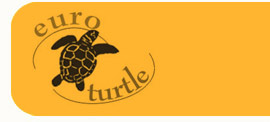|
|
 |
Marine
Protected Areas (MPAs)
|
|
 |
Current
pressures on marine environments put the long-term productivity
of our oceans and seas at risk. The creation of Marine Protected
Areas (MPAs) is an effective tool for providing lasting protection,
enabling restoration and helping allowing for sustainable
use of the oceans. MPAs
have been proven to allow threatened fish stocks to recover
and contribute to increasing the productivity of adjacent
fishing areas. In Fiji, a locally managed MPA network has
tripled fish catches and increased local income by 35 per
cent over three years. In the Egyptian Red Sea, five years
after the establishment of marine reserves, fishing has
increased by 66 per cent in neighbouring areas. At present,
less than 1% of the oceans are protected, compared to almost
13% of the Earth’s land area. |
| MPAs
should not be considered as isolated islands of nature but
as tools in the service of the sustainable management of the
oceans. MPAs help protect sensitive environments and threatened
species but isolated MPAs cannot provide truly effective conservation
of marine habitats.
To
balance the needs of fisheries and the marine environment,
and optimise the benefits of MPAs, it is best to protect
a network of marine areas. Such networks must comprise carefully
selected key inshore and offshore habitats, ensuring protection
for the full spectrum of marine species and habitat types.
Networks should also incorporate migratory movements and
ecological corridors across ocean basins. One of the commitments
made by world leaders at the World Summit on Sustainable
Development (WSSD) in 2002 was to address the current inadequate
protection of our oceans and coasts by creating representative
networks of MPAs by 2012.
|
|
|
Unfortunately,
due to lack of funding and available resources fewer than
10% of designated MPAs are achieving their management goals
and objectives, almost all are open to some forms of tourism
and recreation, and 90% are open to fishing.
Sources:
http://www.medpan.org/_upload/893.pdf
http://www.mpaglobal.org/home.html
|
|
|
 |





